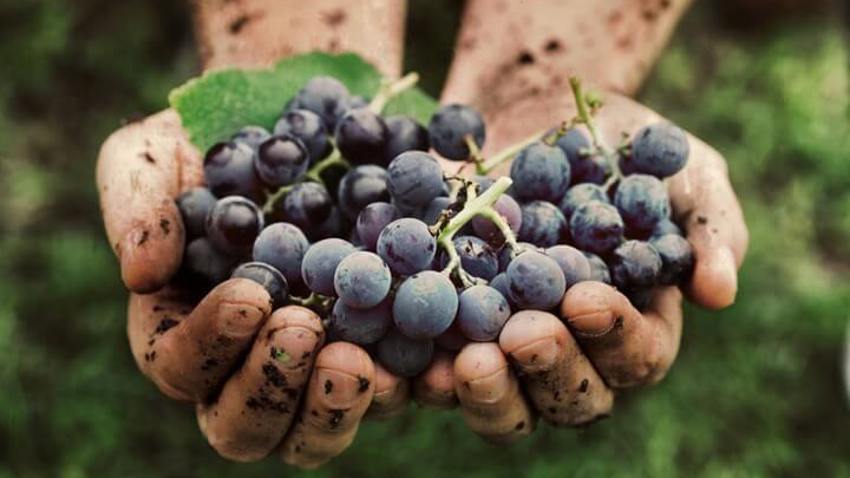
Is the surge in popularity for sustainable wines driven by taste or by ethics? In this blog, we're asking if you can actually taste sustainable wine-making in a glass of the good stuff. Given the impact the industry has on the environment, is ditching modern wine-making methods a step-backwards or a welcome return to wines with more character? Here we explore the arguments for and against sustainably made wines tasting better!
The argument for tasting sustainability
Over the last few years, consumers have become more aware of the potential impact their everyday life choices have on our planet and their surroundings. We can see increasing popularity for products that use less plastic, waste less water, and have lower food miles. How do these demands translate to the wine world? A product that often travels 1000’s of miles just to reach your glass.
Traditionally vineyards have relied heavily on the preventative spraying of herbicides. These chemicals are used to keep diseases away from vines, but the run-off can contaminate waterways. Water is crucial to wine production; copious amounts is used to clean machinery and to water vines where irrigation is allowed. Even after harvest, the environmental impact grows, with wine shipped in heavy glass bottles all around the world.

Today, consumers, and millennials, in particular, want to know more about where their wine comes from and how it is produced. We have accordingly seen an increase in organic agriculture and wineries using sustainable practices. These practices include using alternatives to chemicals such as cover crops and organic fertilisers, reducing energy and water usage, and using lighter bottles. The list of techniques winemakers now employ to lower their carbon footprint goes on.
The organic concept is not new, and has been around for decades now. For wine this involves finding more natural alternatives to industrial fertilisers, pesticides and herbicides. These chemicals are blamed for a decrease in insect and bird populations, water contamination and soil degradation. These effects, in turn, lead to further dependency on fertilisers to ensure optimum soil health.
But what does all this mean for the liquid in your glass? Not following sustainable practices can make it easier for winemakers to create a wine that appeals to consumers at a competitive price point. They can spray crops to fight disease, optimising production; tailor production methods to ensure each vintage is as similar as possible. This standard approach can lead to wines with little personality.
Sustainability gives the winemaker the challenge that no two vintages will ever be the same. Each year will bring different challenges to overcome, which cannot be treated with an ‘off the shelf’ industrial fertiliser. Some winemakers believe that focusing on the health of the soil has a direct impact on the final wine. They are creating wines with more balance and better acidity; wines that work in harmony with their surroundings.
Video: Sustainability the drinks industry
The argument tasting sustainability
Wineries are just ticking that green box to appeal to a broader consumer base. Sceptics argue that sustainable initiatives are about promoting a 'green image', a soulless commercial ploy to sell more wine to earnest customers. In some instances, you can even argue that organic wine-making is more damaging than its mass-produced counterpart. Some claim that ‘organic’ treatments, such as copper and sulphur, are actually damaging the environment more than synthetic sprays.

There is also plenty of confusion around. Just because a wine is organic, doesn’t mean that it is sustainable. An organic winery might still use copious amounts of water and energy in production. The winery may continue to bottle their wine in heavy bottles with lots of packaging. However, the connotations of 'organic' wine are often different.
Forgoing sustainable wine-making ensures that wines are consistent and harvests are more reliable. These are two traits that the on-trade relies upon to satisfy customers with good entry-point wines all year round. Ultimately, it's consumers that will have to decide the answer to this question.
Our thoughts
Can you taste sustainability? In many wines, we think you can. However, whether or not sustainably produced wines taste better isn't what is driving the trend. Our customers are open with us on this. Public awareness of sustainability is rising, and this is forcing the trade to respond.
Down to earth [wines] means a great deal to us as an organisation due to the awareness of the public on sustainability and we have to act upon it
By Kristian, East Anglia Restaurants.
We've acted accordingly, adding more organic and ethically produced wines each year. We recognise all producers that are working towards organic or ethical practises so that you can make your own informed choice. This is whether the winemaker chooses to be certified or not.
Poll: Vote on this debate!
If this poll fails to load, please click here
Look out for our leaf icon that highlights activities carried out by producers we represent; activities that come under a broad ethical umbrella. Thirty-eight new additions from our Autumn Release are marked with this icon. You can download our brochure here or browse our full ethically produced wine range on our website.
